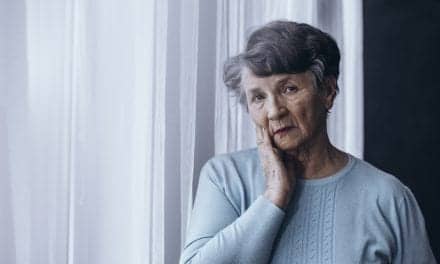Orfeu Buxton, PhD, succeeds Lauren Hale, PhD.
Even sleep scientists can suffer from sleep deprivation. Orfeu Buxton, PhD, will tell you that he learned this the hard way. While conducting some of his earliest experiments on sleep, Buxton, now a professor of biobehavioral health at the University of Pennsylvania, sacrificed shut-eye to study the phenomenon of circadian rhythms.
Early in his career, he spent countless hours in the lab, more than 24 hours at a time, at the University of Pittsburgh, where he was a behavioral neuroscience undergraduate student in the ‘80s. He routinely stayed up all night to test blood samples and cerebral spinal fluid looking for signals that provided insights about the circadian clock. It was a time when sleep, even amongst sleep researchers, was for the weak.
As a result, Buxton, then a junior in college, could barely keep his eyes open during his early morning chemistry class. Even in the front row, just a few feet in front of his professor, he nodded off. “I could not stay awake,” he says. “It was literally painful.”
The fascination with sleep that started in the lab quickly became personal. “I learned that sleep was not a night before thing—it was a lifestyle,” says Buxton.
“I came to appreciate and relish sleep, but first I had to explore all of the deficiencies of the culture when I was growing up that utterly devalued sleep for literally any other ambition or activity,” he says. “I think we have made a bit of a cultural shift since then.”
Sleep Health Journal
Now, Buxton has been selected as the upcoming editor-in-chief for Sleep Health: Journal of the National Sleep Foundation.
The journal publishes manuscripts that advance the sleep health of all members of society. Current editor-in-chief Lauren Hale, PhD, will continue to serve the journal until July 2020, when Buxton will take over.
“I’m particularly excited about interdisciplinary researchers who are discovering sleep health or who are including sleep health in their research. Sleep is an amazingly interdisciplinary and collaborative field. We are the glue in many large, complex projects that take an integrative approach to health,” says Buxton.
Sleep Health will continue to accept manuscripts from researchers throughout the academic spectrum, including anthropology, law, education, and others. 
“There are so many interesting ways to approach sleep and ways in which sleep affects not only an individual and their brain, but their body, their family, their coworkers, their social interactions. All of that is very exciting and I am looking forward to continued engagement with interdisciplinary researchers,” says Buxton.
Sleep Deficiency Research
Buxton’s undergraduate days led him to earn his PhD in neuroscience from Northwestern University in 2000, then on to a postdoctoral fellowship at the University of Chicago. He later taught at Harvard Medical School and the Harvard Chan School of Public Health before taking his current professorship with the Penn State Department of Biobehavioral Health and becoming the director of the Penn State Sleep, Health & Society Collaboratory.
Now his research focuses on the causes and consequences of sleep deficiency throughout society. He also studies the health consequences of sleep deficiency, especially cardiometabolic and cognitive outcomes.
“I am especially interested in the physiologic and social mechanisms by which these outcomes arise and generally my work has an orientation toward interventions,” he says.
And he’ll use his personal and academic experiences to inform his stewardship of Sleep Health. “I want to remain open minded to what our authors bring forward as innovative new work. I see sleep as an important signal in our ever changing world,” he says. “Now we know that sleep is not for the weak.”
Lisa Spear is associate editor of Sleep Review.




